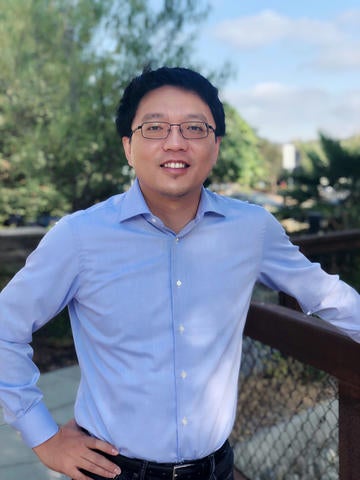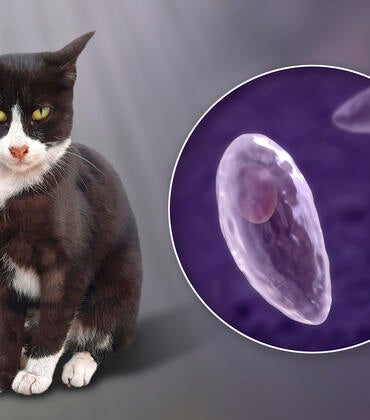
The fourth annual Thomas and Salma Haider Biomedical Breakthrough Lecture at the UC Riverside School of Medicine on Thursday, Oct. 7, 2021, will focus on synthetic genome engineering — editing genomes with synthetic molecules to allow organisms to acquire new and useful abilities.
Lei Stanley Qi, an assistant professor of bioengineering and of chemical and systems biology at Stanford University and a major contributor to CRISPR technology development for genome engineering, will give this year’s lecture titled “Synthetic genome engineering for genomics and therapeutics.” CRISPR is a powerful tool for editing genomes.
In synthetic biology, long stretches of DNA are stitched together and inserted into an organism’s genome. Genome engineering involves using genetic tools, like CRISPR, to make smaller changes to an organism’s own DNA. Qi’s lab combines synthetic biology with genome engineering to understand the function of mammalian genomes and develop gene therapy.
His lab developed the CRISPR interference, or CRISPRi, technology and CRISPR activation, or CRISPRa, technology for gene expression regulation, which are broadly used for studying genomics in different organisms.
Qi received his bachelor’s degree in physics from Tsinghua University in China and his doctoral degree in bioengineering from UC Berkeley. He joined the faculty at Stanford University in 2014.
The online event, which begins at 5 p.m., is free and open to the public. Registration information.
“Genome editing has transformed the way we study biology and medicine,” Qi said. “While the CRISPR technology emerged as a molecular scissors of the genome, we reimagined CRISPR as a Swiss Army knife for broad applications. Our work expanded our abilities to precision-engineer the genome beyond editing, including gene regulation, epigenome editing, chromosome imaging, and 3D genome organization. These new applications allow us to better understand our DNA and explore novel gene therapies.”
Qi is the holder of several patents and is on the boards of many advisory committees and professional organizations. He has received numerous awards including the National Institutes of Health Director’s Independence Award and an Alfred P. Sloan Fellowship. He was named a Pew Biomedical Scholar by the Pew Charitable Trusts and was included in 35 Innovators Under 35 by MIT Technology Review. In 2019, Science News listed him as one of the “Scientists to Watch.”
The Haider Lecture invites nationally and internationally renowned physicians and researchers to the UCR campus for a keynote lecture and student interaction. This year’s lecture is presented remotely due to the pandemic.




